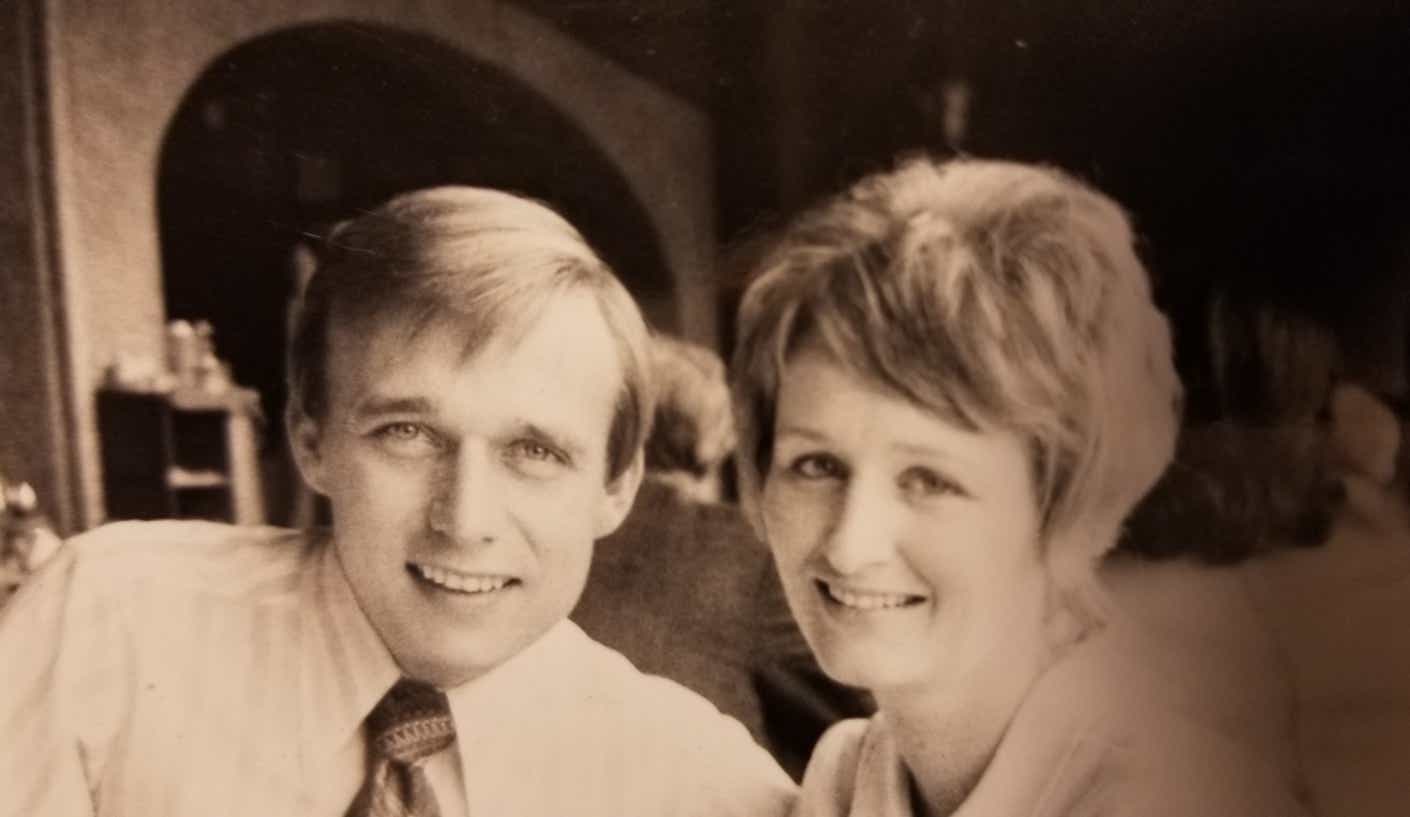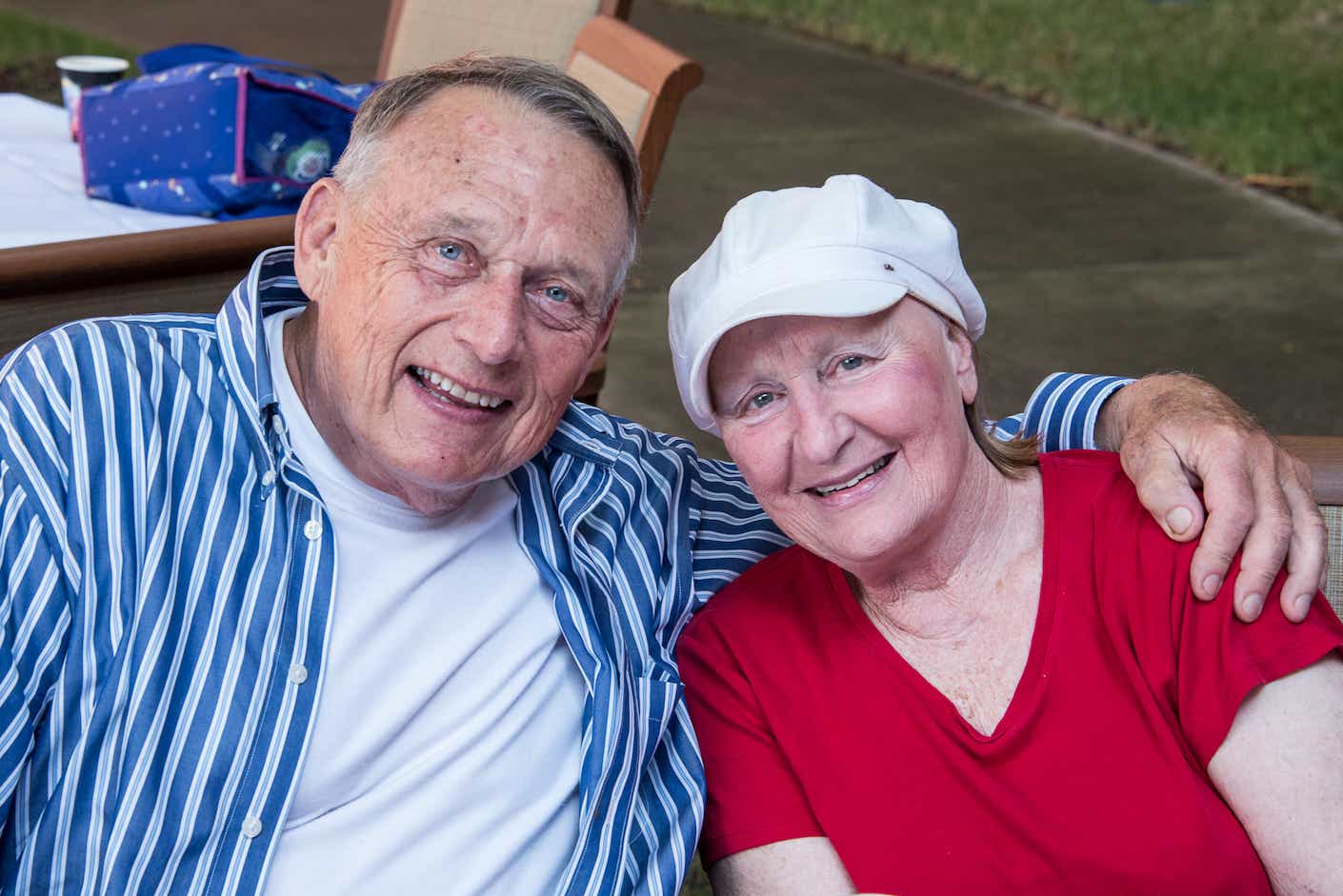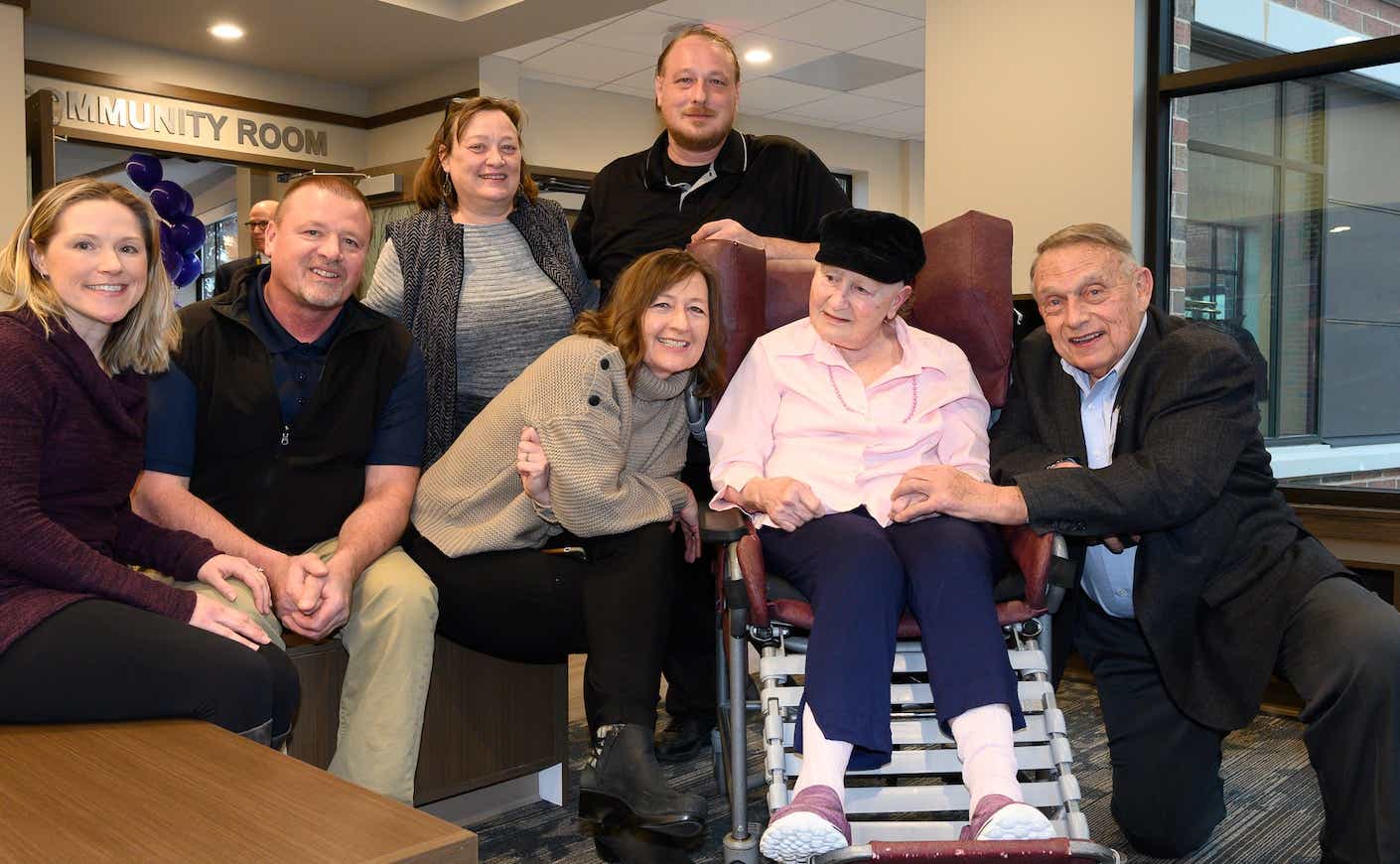Martin J. Schreiber grew up in Milwaukee, Wisconsin. In 1962, he was elected as the youngest-ever member of the Wisconsin State Senate. He was elected lieutenant governor in 1970 and, in 1977, became the 39th governor of Wisconsin. Martin recently retired from his public affairs firm in Milwaukee and now is an advocate for Alzheimer’s caregivers. After spending nearly 20 years caring for his wife Elaine, he is passionately committed to speaking out to help caregivers and their loved ones live their best lives possible. He shares his experiences in My Two Elaines: Learning, Coping, and Surviving as an Alzheimer’s Caregiver. Martin has four children, 13 grandchildren, and seven great-grandchildren.
I took care of my beloved wife Elaine for almost 20 years after she was diagnosed with Alzheimer’s. I slowly watched her become another person — my second Elaine. Someone recently asked if there is a second Marty, too. Do we, as Alzheimer’s caregivers, become different versions of ourselves because of this journey?
The experience of being an Alzheimer’s caregiver is so daunting, I feel like I’ve transformed several times during the last 20 years. At the beginning, those changes weren’t so wonderful. Then, there was almost no Marty; I almost lost him completely to caregiving.
I was suffering from what I call Careheimer’s.
As I often say, when there’s a diagnosis of Alzheimer’s, there are two patients: the person with the disease and the caregiver. People immersed in caregiving may become ill themselves because of the strain they are under. They often don’t eat well, exercise, get enough sleep, or have time to themselves. That’s Careheimer’s, and I experienced it myself to a dangerous degree.

Loneliness, isolation, and the physical stress associated with Alzheimer’s disease can be deadly for caregivers. Careheimer’s can be fatal — but it doesn’t have to be.
I know what a lonely and depressing place it is when a loved one has Alzheimer’s. Maybe you feel guilty about asking for help — but you shouldn’t. Keeping yourself strong is the single most important thing you can do as a caregiver. I share what mistakes I’ve made and wisdom I have learned in My Two Elaines: Learning, Coping and Surviving as an Alzheimer’s Caregiver to help other caregivers know they are not alone.

If you’re caring for someone with Alzheimer’s, I encourage you to read My Two Elaines and start taking care of yourself with these practical suggestions:
Find a support group
You may think you can’t afford the time, but I believe that as an Alzheimer’s caregiver, you can’t afford not to join a support group. Connecting with others who face similar challenges can be enormously helpful and comforting, and it helps us realize we are not alone. When you tell others what you’re experiencing, you’ll probably get more hugs and maybe even a chicken casserole. When you go to counseling or a support group, you’ll learn skills to deal with the daily challenges of caring for someone who lives with Alzheimer’s. When you open up, the burden of caregiving may seem a little lighter.
Seek counseling
Consider professional help if you’re struggling to cope. Contact the Alzheimer’s Association to connect with a personal counselor or ask your physician to help you recognize symptoms of stress and caregiver burnout and seek treatment if you need it.
Do things for you
It’s only human to feel anger, fatigue, and isolated at times. Eat a healthy diet, exercise, and seek out regular medical care. Try to carve out time for hobbies, time with friends, and other things you enjoy. Confide in a trusted friend or relative when you need to.
Give yourself a break
Respite care provides time for you to rest while your loved one is cared for in a safe environment. You can use it to run errands, shop for groceries, get a haircut, keep medical appointments, or just take time to relax while your loved is with trained caregivers. Respite care can be done in your home by a friend, relative, volunteer, or a paid service, or at an adult day care or residential facility. These services can support you as a caregiver in the long and short term, and can be especially useful if you have an unexpected need for help, such as illness.

Plan ahead and communicate often
Ideally, families will have discussed this type of scenario before they’re faced with it. If you’re completely unprepared for a diagnosis like Alzheimer’s or dementia, disagreements about care arise. Whether or not you’ve already planned for this, be sure to:
Communicate early and often about your loved one’s needs and care.
Encourage family members to visit and spend time with your loved one so they can see firsthand what he or she needs.
Call a family meeting so everyone can ask questions. You can also discuss the situation and possible solutions. Family members can help from near or far, whether it’s by spending time with the patient in person or managing the financial logistics that come with a diagnosis.
Don’t try to please everyone
You simply can’t. As you better understand the disease over time, it will become easier to stay on-course and provide meaningful care that is best for your loved one. When you try to please everyone it only leads to frustration and anxiety.
Your loved one is counting on you more than ever. Don’t try to go it alone. Don’t become a victim of Careheimer’s.









